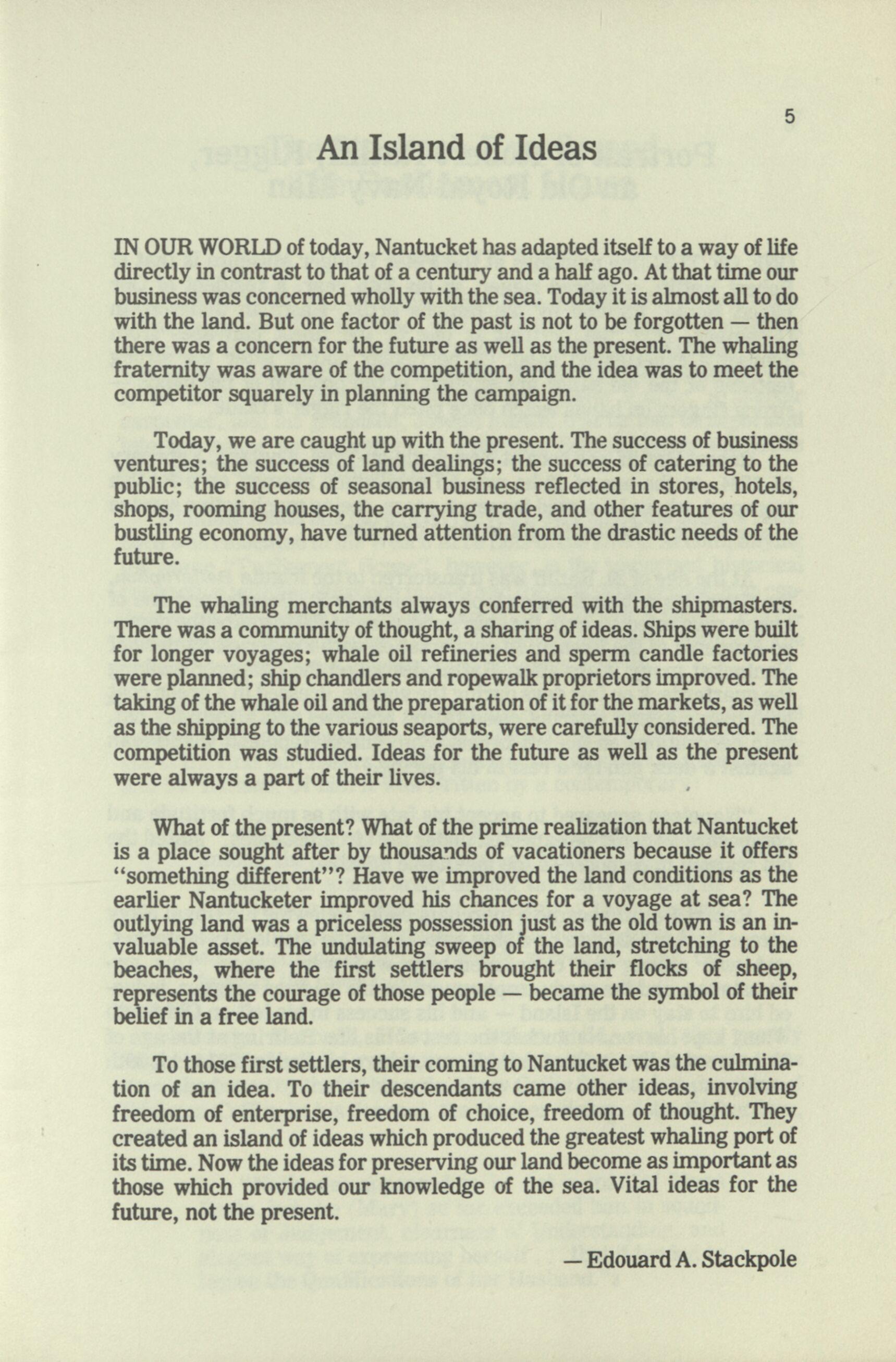
2 minute read
Editorial: An Island of Ideas
An Island of Ideas
5
IN OUR WORLD of today, Nantucket has adapted itself to a way of life directly in contrast to that of a century and a half ago. At that time our business was concerned wholly with the sea. Today it is almost all to do with the land. But one factor of the past is not to be forgotten — then there was a concern for the future as well as the present. The whaling fraternity was aware of the competition, and the idea was to meet the competitor squarely in planning the campaign.
Today, we are caught up with the present. The success of business ventures; the success of land dealings; the success of catering to the public; the success of seasonal business reflected in stores, hotels, shops, rooming houses, the carrying trade, and other features of our bustling economy, have turned attention from the drastic needs of the future.
The whaling merchants always conferred with the shipmasters. There was a community of thought, a sharing of ideas. Ships were built for longer voyages; whale oil refineries and sperm candle factories were planned; ship chandlers and ropewalk proprietors improved. The taking of the whale oil and the preparation of it for the markets, as well as the shipping to the various seaports, were carefully considered. The competition was studied. Ideas for the future as well as the present were always a part of their lives.
What of the present? What of the prime realization that Nantucket is a place sought after by thousands of vacationers because it offers "something different"? Have we improved the land conditions as the earlier Nantucketer improved his chances for a voyage at sea? The outlying land was a priceless possession just as the old town is an invaluable asset. The undulating sweep of the land, stretching to the beaches, where the first settlers brought their flocks of sheep, represents the courage of those people — became the symbol of their belief in a free land.
To those first settlers, their coming to Nantucket was the culmination of an idea. To their descendants came other ideas, involving freedom of enterprise, freedom of choice, freedom of thought. They created an island of ideas which produced the greatest whaling port of its time. Now the ideas for preserving our land become as important as those which provided our knowledge of the sea. Vital ideas for the future, not the present.
— Edouard A. Stackpole









